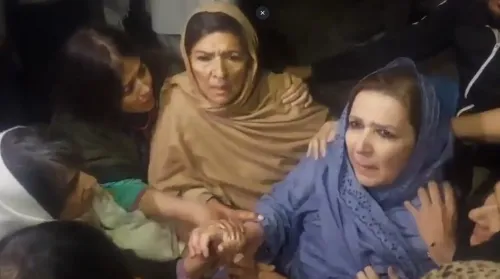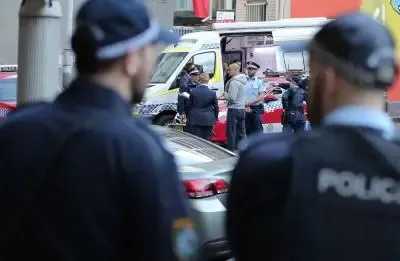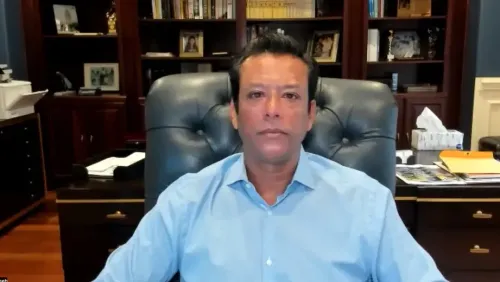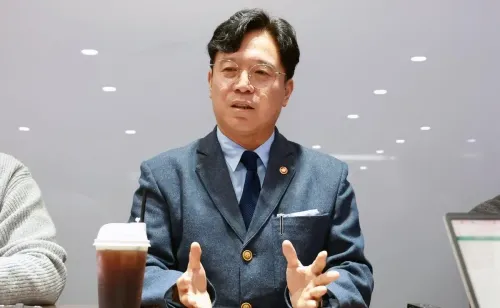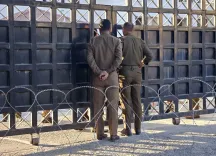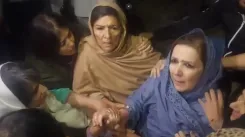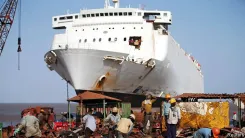Did Putin, Not Trump, Really Win the High-Stakes Meeting?
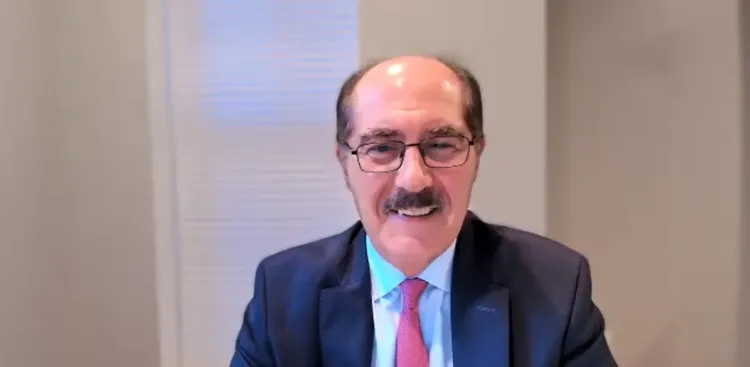
Synopsis
Key Takeaways
- Putin and Trump met to discuss critical issues but failed to reach a ceasefire.
- The New START Treaty could be a potential area for agreement.
- Europe's position remains precarious due to reliance on U.S. military support.
- Sanctions against Russia complicate international relations.
- Overall, Putin appears to have gained the upper hand from the meeting.
New Delhi, Aug 16 (NationPress) In a revealing interview with IANS from Washington, D.C., Professor Klaus Larres from the University of North Carolina expressed his insightful perspectives on the significant meeting between U.S. President Donald Trump and Russian President Vladimir Putin. The conversation explored various topics, including the implications of their encounter, potential agreements on Nuclear arms control, the future trajectory of the Ukraine conflict, and the geopolitical consequences for Europe, India, and the global sanctions framework.
Prof. Larres provided an in-depth analysis of the meeting's impact on global diplomacy and identified the true political victor.
Here are the highlights from the interview:
IANS: What was your immediate response to the meeting between Presidents Putin and Trump and their shared statements?
Larres: The entire situation was quite astonishing. It commenced with a welcoming ceremony where President Trump greeted President Putin in a manner reminiscent of an old acquaintance. Although they last met in 2019, Trump did not regard him as an adversary but rather treated him as a family member. He even offered Putin a ride in his presidential limousine. While this was courteous, it leaves us in the dark regarding their private discussions during that journey.
President Putin is proficient in English, so they must have exchanged some words — perhaps some casual conversation. Additionally, there were closed-door discussions whose details remain unknown. Later, during a press briefing, Trump referred to him simply as “Vladimir.”
IANS: Throughout the statements, President Putin reiterated his points, indicating he remains steadfast in his maximalist objectives. Do you perceive any alteration in Russia's stance?
Larres: No, I don’t. No significant shift was anticipated. Putin has maintained his position entirely. Many had hoped for a ceasefire — potentially even a temporary one — but that clearly did not materialize. It was suggested that Putin would need to concede something for Trump to announce a victory, but that does not appear to be the case. Putin did bring a business delegation, hinting at possible business arrangements, but that is entirely distinct from the Ukraine conflict.
Even if Trump later declares significant business agreements, it would not bring an end to the war. He aims to be perceived as a peacemaker and desires the Nobel Peace Prize, yet the truth is that hostilities in Ukraine persist.
A potential area for agreement between Trump and Putin could be the extension of the New START Treaty, which is set to expire in February 2026.
This treaty is the sole Nuclear arms control agreement between the U.S. and Russia, capping the number of missiles and warheads for both nations. Should they come to an agreement to extend it, it would be a positive outcome — but it would not resolve the war in Ukraine. I suspect some agreements were made, but none pertaining to ending the conflict.
IANS: Putin also mentioned in his statement that he hopes any agreements reached will not be “torpedoed” by Europe. How much pressure is Europe currently facing?
Larres: It’s challenging to ascertain because the specifics of the agreements are unknown. If it concerns extending the Nuclear treaty, Europe would not oppose it. However, if it involves a business deal that compromises Ukraine, the Europeans would object. Nevertheless, Europe finds itself in a precarious position, heavily reliant on the U.S., particularly in military matters. The ball is presently in Trump's court. Putin asserts that Russia has emerged stronger, including militarily, but that narrative is not entirely accurate — it has not become weaker either.
IANS: There’s a notable irony in Trump welcoming Russian business leaders while the U.S. has sanctioned India for purchasing Russian oil.
Larres: Numerous Russian firms face sanctions from both the U.S. and Europe. Bringing a business delegation was quite unusual — it indicates Putin anticipated that sanctions would either be lifted or overlooked. Had this occurred, it would have been difficult for Trump to justify secondary sanctions on nations like India or China. How can you rationalize sanctioning countries that acquire Russian oil while not penalizing the source of that oil?
IANS: If you were in New Delhi presently, would you feel a sense of relief?
Larres: Yes. Were I Prime Minister Modi, I would anticipate at least some temporary reprieve from secondary sanctions.
IANS: The U.S. is keen on restoring bilateral commercial ties with Russia. What are the implications for Europe?
Larres: This would place Europe in a challenging situation. The EU has executed 18 sanction packages — most of which have been successfully implemented, albeit not without internal disputes, particularly from nations like Hungary and Slovenia. If the U.S. normalizes trade with Russia, Europe’s firm stance would likely weaken over time, ultimately jeopardizing the EU sanctions framework. Putin is aware of this, and such a development would drive a wedge between the U.S. and Europe, as well as within the EU itself.
IANS: Considering the optics, who do you think emerged as the victor?
Larres: From an impartial standpoint, it appears that President Putin clearly came out ahead. The optics depicted both leaders as strong figures sharing the spotlight. However, in terms of tangible outcomes — no ceasefire, no resolution to the war — it’s evident that Trump did not fulfill his primary objective.

